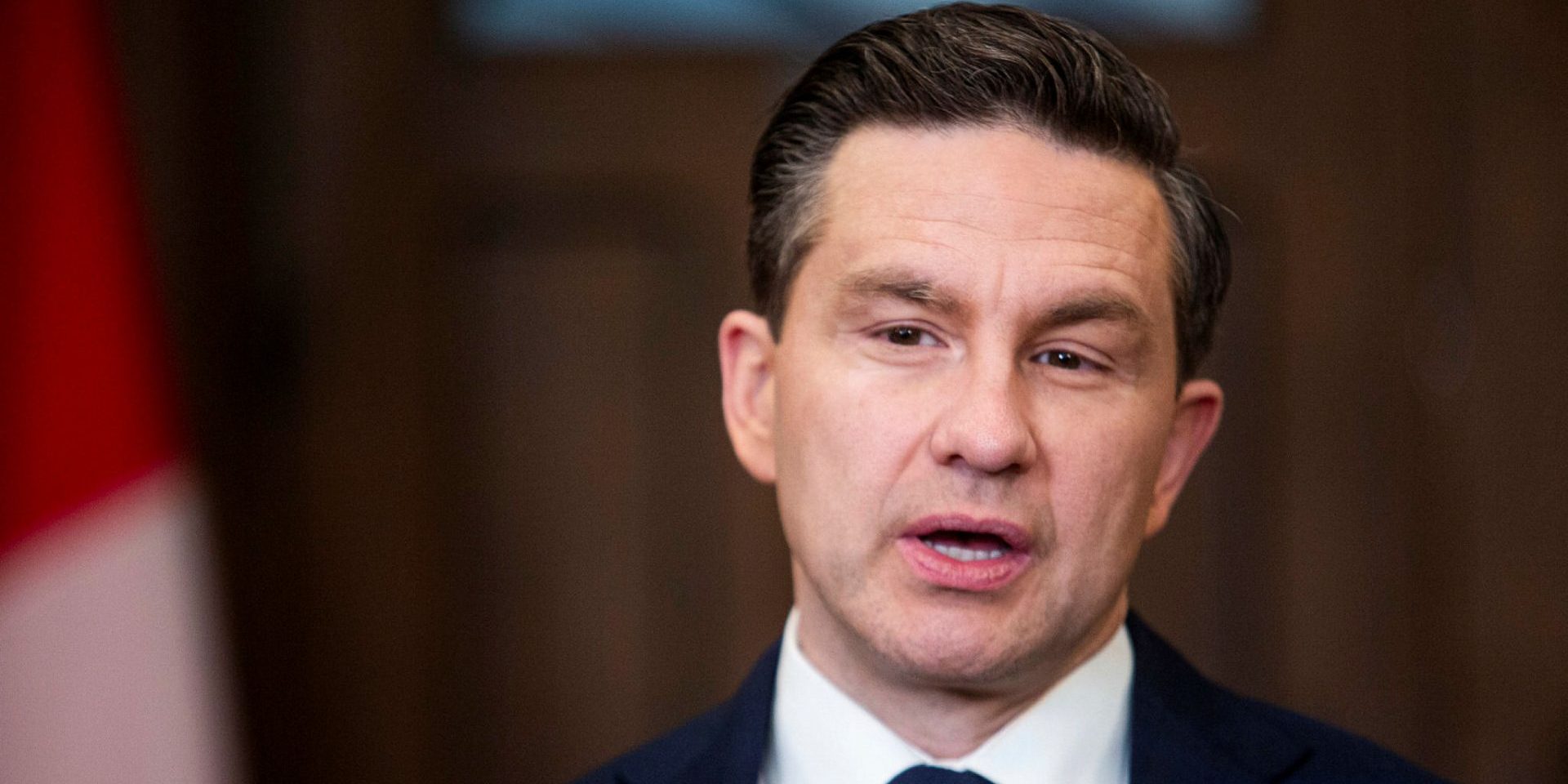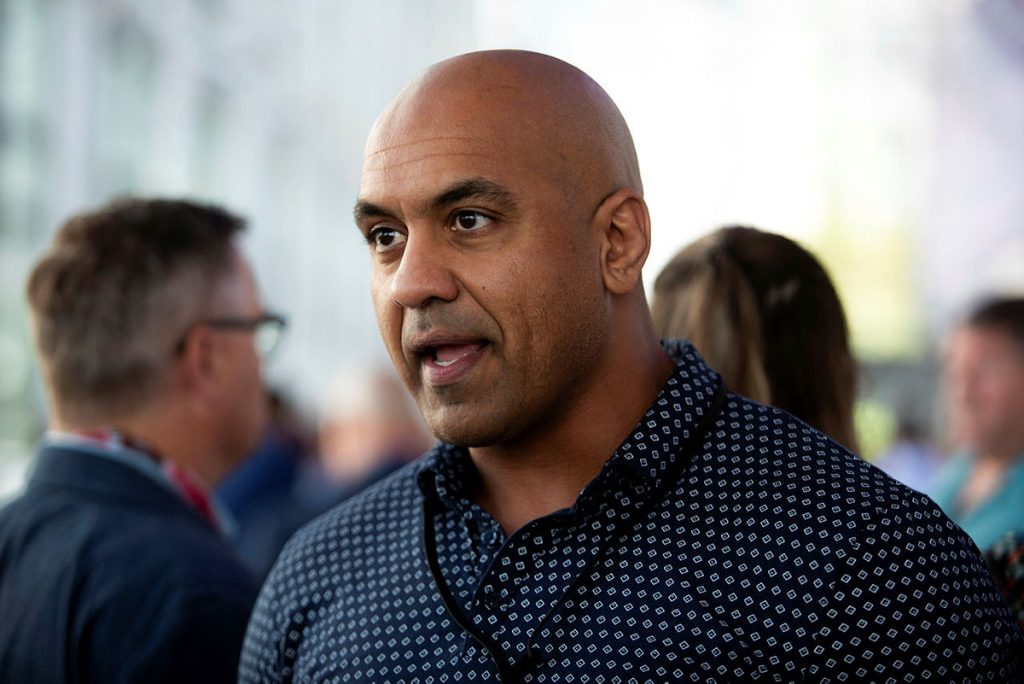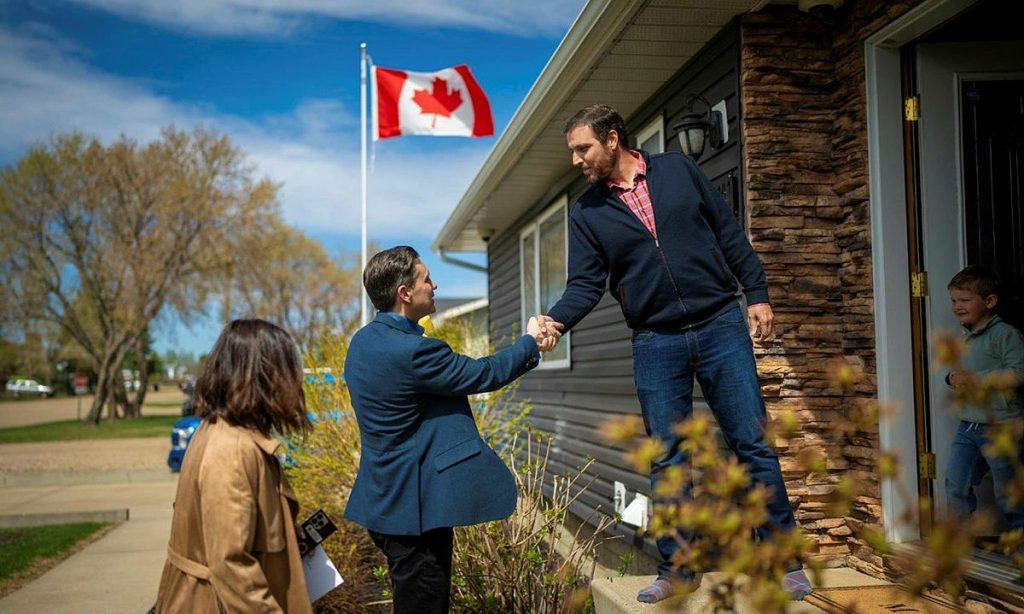Poilievre is reaching out to unsuccessful candidates for feedback, say Conservatives: ‘he’s doing a post-mortem himself’

Conservative Party Leader Pierre Poilievre is reaching out to unsuccessful candidates from this year’s election to get their feedback and to gauge the level of support for him within rank-and-file party members ahead of the mandatory leadership review, say Conservatives.
“He’s doing a post-mortem himself,” said an unsuccessful candidate who only agreed to speak on a not-for-attribution basis because the conversation with their leader was private. “He wants to hear from everybody. It’s an individual check-in from him. He’s obviously trying to rally support, trying to figure who’s coming with him in the next election.”
In interviews with The Hill Times, Conservative candidates of record from different regions of the country said that Poilievre personally reached out to them, and that these phone calls typically lasted between 20 and 40 minutes.
According to these candidates, the leader listened attentively to their candid reflections. The candidates shared insights into why they believe they lost their ridings—many of which were considered competitive before the election. They said that Poilievre came well-prepared, familiar with the vote counts in each riding. The candidates offered frank feedback on what went wrong, pointing to concerns with the party’s messaging, the loss of support to the Liberals among senior citizens—a traditional ally of the Conservative Party—and the need to broaden the party’s electoral base.
“We’ve got to expand the base, and we need to get more seniors on our side,” said the candidate. “The boomers are now sitting with the Liberals, and we need to expand our messaging. There’s different levels of conversation that people had [with Poilievre]. Some of the more experienced candidates have pushed him a little more. We’re all trying to figure this thing [election outcome] out .”
During these calls, Poilievre also gained a sense of whether the candidates intend to run again in the next election, candidates told The Hill Times. While he did not directly ask them, many candidates volunteered this information on their own. At the same time, Poilievre never raised the subject of his leadership review, but the candidates saw these calls as an indirect way to rally support and to get a sense of his level of support within rank-and-file members of the party. They explained that candidates of record are the leader’s local representatives on the ground; they serve as important points of contact for Poilievre within their communities as most ridings have hundreds or thousands of card-carrying party members in each riding association.
According to the party’s constitution, any leader who fails to win an election must undergo a mandatory leadership review. Poilievre is widely expected to receive strong support from delegates during the leadership review at the next biennial policy convention. The Conservatives failed to form government after the April 28 election but won 41.3 per cent or nearly 8.1 million votes across Canada, while the Liberals won 43.7 per cent or 8.6 million votes. The Conservatives increased their total vote count compared to the 2021 federal election, when they received 33.7 per cent or 5.7 million votes.

“Rallying support is not a bad thing,” said the source. “He doesn’t necessarily say, ‘I’m calling for feedback.’ He’s saying ‘I’m trying to touch base, want to connect with you.’ Generally speaking, if you think about all the candidates, every candidate is connected to thousands of members, basically. There’s going to be delegates coming to the convention.”
Conservative candidates said that some may not run again chiefly because the timing of the next election remains uncertain. They explained that once someone becomes a nominee, their work and personal lives are effectively put on hold until the election is called. Several of them admitted they hadn’t fully anticipated the personal and professional sacrifices involved in running for office in the last election.
“When you are running, these things are difficult. Your whole life is on hold. A lot of people who did it [last time] didn’t realize what it will take,” said the source. “Some of these people are tired. From his perspective, he’s checking in with everybody and he’s listening.
Sources said that, toward the end of each conversation, Poilievre thanked the candidates for their efforts and feedback, and promised to stay in touch going forward.
For about 18 months in the lead-up to the April 28 election, the Conservatives had maintained a double-digit lead in the polls—largely driven by growing public frustration over the rising cost of living and fatigue with then-prime minister Justin Trudeau’s nearly nine-year tenure. Most voters blamed the Liberal government for inflation and the sharp increases in housing, gas, and grocery prices. However, the political tide began to shift after Trudeau announced he would not to lead the party in the next election, and the trade tensions with the United States helped the Liberals gain renewed public support.
The recent election loss was a major disappointment for party members and candidates alike, many of whom had expected a landslide majority. Although the Conservatives won 41.3 of the vote across Canada, and nearly 8.1 million votes, they did not win government with 144 seats. In this election, Poilievre even lost his own riding, and will now run in a forthcoming byelection in Battle River-Crowfoot, Alta.
Ron Chhinzer is a former Toronto Police officer and a Conservative candidate who ran unsuccessfully in Oakville-East, Ont., losing to Foreign Affairs Minister Anita Anand by 6.2 percentage points. He confirmed to The Hill Times that he spoke recently to the leader about the election.
He declined to share specific details, citing the confidentiality of their discussion. Chhinzer had previously lost the 2022 Mississauga–Lakeshore byelection to Liberal MP Charles Sousa. If Chhinzer chooses to run again, he would require a party waiver, as candidates who have lost twice must seek special permission from the party. For now, Chhinzer remains undecided, saying that his choice will depend largely on the timing of the next election, and whether or not his family wants him to run again.
“I support him as the leader, he’s exactly what we need going forward,” said Chhinzer. “He unified the country in a lot of different ways. Wherever I can support him, I will. He’s all in, so there’s no change in him. He’s going to do the hard work. He’s doing the hard work. He’s motivated.”

A third candidate of record said it was important for Poilievre to hear directly from those who ran about their experiences on the ground. They said that candidates spent months door-knocking, and saw first-hand how public sentiment shifted. For nearly 18 months, Canadians seemed eager for change in government, but many changed their minds and ultimately gave Liberals a fourth mandate. These nominees, the source said, can help the leader understand why the momentum shifted so drastically.
“You need to hear from those who were in the trenches, who knocked on doors, who heard the good things and heard the bad things on the doors, and hear that first hand because there is no substitute for hearing such feedback directly, especially when people who put their … their lives on hold to represent the party, to really explain why or what happened, or what they think happened,” said the candidate.
They also said the campaign team “missed the moment” rather than rising to meet it—ultimately losing the election. It’s still unclear why the team was so slow to pivot. They continued emphasizing the carbon tax even after it was apparent in January that the Liberals would abandon it, and they failed to adequately address the escalating trade tensions with the U.S. The source speculated that the Conservatives’ consistent high double-digit lead in the polls—driven largely by cost-of-living concerns—may have given party leaders false confidence. They likely believed that sticking to this issue would secure victory. The candidate added that no one they know can recall a previous election in which a governing party, trailing by as many as 27 points, rebounded so quickly to win.
“Did the [Conservative] party meet the moment, or did the party missed the moment?” said the source. “And I think it’s fair to say that the party certainly didn’t meet the moment in terms of the overall campaign strategy.”
arana@hilltimes.com
The Hill Times






 LICENSING
LICENSING PODCAST
PODCAST ALERTS
ALERTS













